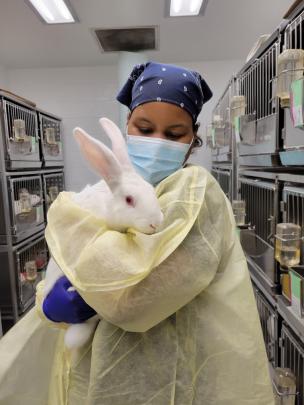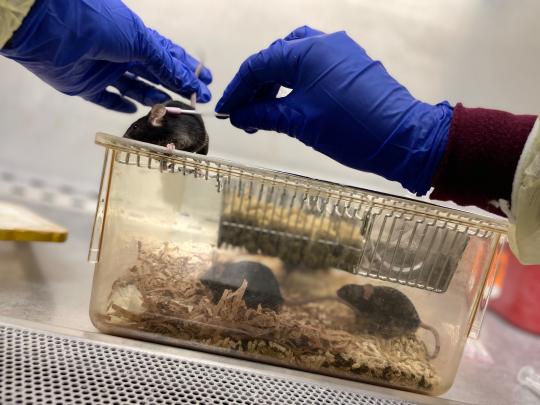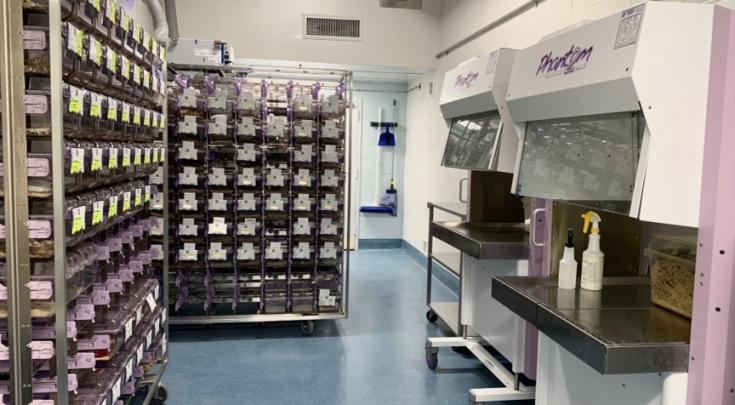Comparative Medicine Services
Getting Started
Investigators new to Rutgers, information here will help you understand initial steps that are required to set-up animal research lab at Rutgers University. Before commencing research, it is required to have an approved IACUC protocol in place. Investigators and their team members will also need to obtain a Rutgers NetID to gain access to online resources. NetID can be activated on Rutgers NetID management and Service Activation.
Listed below are useful links related to IACUC that can help navigating the IACUC protocol submission process:
The Rutgers Institutional Animal Care and Use Committee (IACUC)
IACUC Policies and Regulations
IACUC Frequently Asked Questions (FAQ)
eIACUC Training Documents and Videos. eIACUC is a web-based system for protocol submission and other federally mandated IACUC functions such as facility inspections and meetings.
Fee Schedule
Information pertaining to rates and technical service fees can be found at Animal Care's Per Diem Rates.
Facility Access and Training
To comply with federal regulations and accreditation requirements, in addition to having an approved protocol in place, all personnel must also be appropriately trained prior to beginning work with the animals. The training program is essential to the success of the Rutgers’ research program by ensuring continued excellence in animal care and welfare. It ensures that those working with animals are knowledgeable in policies and proficient in procedures.
Investigators are encouraged to visit the Animal Care website to understand the step-by-step training requirements needed prior to initiating their research and gaining access to facilities at Rutgers.
Animal Orders
Animal Care utilizes centralized ordering platform, ACFC, making it easy for researchers to submit order requests and have access to relevant information for their orders. ACFC also contains all relevant protocol, census and account information which can be helpful to PIs and their research team members.
Detailed information on approved vendors, importing animals from other institutions, animal orders submission deadlines, and special pricing for Rutgers researchers can be found at Animal Orders.
Animal Shipping
Rutgers Animal Care can assist in the shipping, quarantine and importing of lab animals every step of the way. For detailed info regarding the shipping process, quarantine process, importing lab animals and shipping charges please visit Animal Shipping.
Veterinary Technical Services
Rutgers employs a team of skilled veterinarians, veterinary technicians and animal care technicians who provide medical care to animals, training, and technical services for research staff.
Our veterinarians are available for consultation and assist with a variety of topics including:
- Assist research staff with development of new animal models and protocols
- Ensure appropriate surgical and postsurgical care is provided
- Provide instruction and advice regarding handling and restraint, anesthetic and analgesic drug selection
- Disease prevention and regular surveillance
- Diagnosis, treatment, and resolution for sick animals
CMR's highly skilled veterinary technician support team is available to provide support in the following areas:
- Anesthesia support
- Breeding and weaning
- Animal identification – ear tag, ear notch, tattoo, microchip
- Tissue collection for genotyping
- Sample collection – blood, urine, other tissues
- Dosing
- Medical treatments
- Drug and supplies ordering
- Euthanasia
- Training on animal handling, procedures, anesthesia, aseptic surgical techniques, and other as required
- Surgical Services
Husbandry Services
Our certified animal technicians are available to provide wide array of husbandry care and services for all animals, including:
- Cage changing and cage washing
- Providing water and food to animals
- Cleaning and maintenance of animal rooms, equipment, and facilities
- Receiving animal shipments and transferring animals to cages to their rooms
- As per your project needs, husbandry staff can also help investigators with additional caging, supplies, special housing, and other husbandry requests as required.



